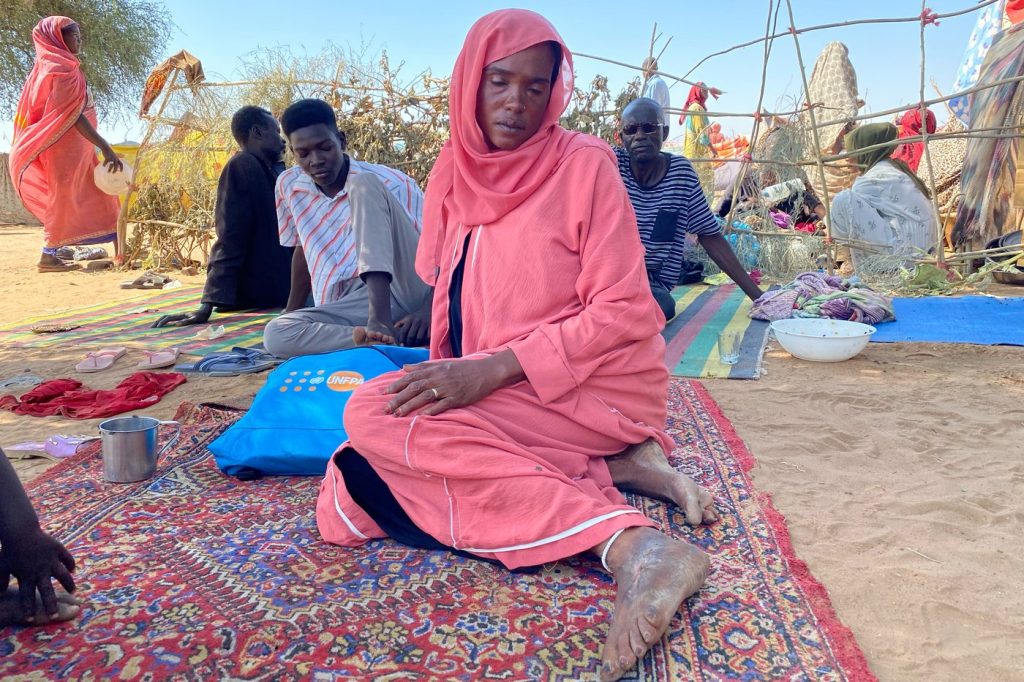OTTAWA — As Prime Minister Mark Carney prepares for his upcoming visit to the United Arab Emirates (UAE), human rights advocates are urging the Canadian government to take more decisive action to prevent the flow of weapons from the UAE to a militia in Sudan, known for its ethnic violence. Critics have raised concerns over the alleged arms shipments despite UAE officials denying any involvement in arming the Rapid Support Forces (RSF) militia.
Numerous human rights organizations claim that aircraft purportedly dispatched for humanitarian aid from the UAE to Sudan are, in fact, transporting weapons. Some advocates allege that these shipments could include arms manufactured in Canada. Martin Fischer, the policy director at World Vision Canada, emphasized the need for Canada to uphold its values in light of these allegations, asserting that Canadian-made weapons are contributing to the escalating conflict in Sudan. He criticized the government's assertion that its arms export regime is top-tier while the situation on the ground contradicts this claim.
During a statement on October 16, Carney mentioned that he would be traveling to the UAE on his way to the G20 summit scheduled for November 22. In parallel, Canadian experts and charities are testifying on the Sudan crisis at the House subcommittee on international human rights.
The civil war in Sudan erupted in April 2023, pitting the national army against the RSF, which has its roots in the Janjaweed militia involved in the first Darfur genocide between 2003 and 2005. Both parties have severely obstructed humanitarian aid access, leaving over 30 million people, including 16 million children, in desperate need of assistance. Fischer pointed out that this number exceeds a quarter of Canada’s total population in terms of children needing help.
This conflict has also led to the world's most significant displacement crisis, encompassing both internally displaced individuals and refugees in neighboring countries. Multiple allegations against the UAE government regarding its support for the RSF have surfaced, yet the government continues to reject these claims, despite the United Nations Panel of Experts on Sudan labeling the reports as credible.
In January 2023, the outgoing administration of U.S. President Joe Biden characterized the RSF's actions as engendering a new genocide in the Darfur region—a designation that Canada has not adopted. The U.S. has enacted sanctions against various parties in Sudan and companies in the UAE accused of supplying arms to the RSF with government backing.
In recent weeks, violent incidents have increased; on October 28, the World Health Organization reported that the RSF attacked a hospital in el-Fasher, Sudan, resulting in the deaths of hundreds of patients and the kidnapping of numerous health workers. Distressing footage online depicted hospital rooms riddled with bullet holes, while reports from Yale’s Humanitarian Research Lab indicated evidence of mass killings.
Following these events, Canadian Foreign Affairs Minister Anita Anand expressed horror at the attacks in el-Fasher and condemned the reported killings of over 2,000 civilians. She urged all parties to adhere to international law and facilitate humanitarian aid immediately. Plans for Anand’s upcoming visit to the Gulf region were mentioned, slated for early 2026.
Martin Fischer stated that the ethnic violence has unleashed horrifying conditions for those fleeing, marked by armed checkpoints, extortion, looting, and alarming reports of sexual violence during their escape attempts. He advocated for Canada to collaborate with international allies to push for both sides to permit humanitarian assistance and to consider increasing its aid contributions, citing Canada’s prior commitment of $103 million in aid to Sudan since the conflict began.
Fischer also recommended tightening Canadian laws to prevent the potential diversion of arms to Sudan under existing export permits. Reports indicate that Canadian firms exported $7 million worth of arms to the UAE in the previous year. Canadians for Justice and Peace in the Middle East have urged Ottawa to cease all arms exports to the UAE to avoid the diversion of arms to Sudan, proposing a thorough investigation into current practices.
Sudanese Canadian groups have long called for more stringent sanctions and consideration of a terrorism listing for the RSF. NDP MP Heather McPherson has recently pressed Canada to exert pressure on the UAE to cease its support for the RSF while advocating for international investigations into the conflict. She criticized Canada’s inaction, claiming it has exacerbated war crimes in the region.
While the federal government has frequently described the UAE as a potential investment partner in artificial intelligence, Minister Anand did not confirm whether she raised concerns about Sudan with her UAE counterparts when asked. Instead, she reiterated the strength of Canada’s arms export controls, stating that the process is acclaimed globally and violations are rigorously monitored. Anand’s office has indicated that they are actively investigating claims regarding Canadian arms reaching Sudan.











